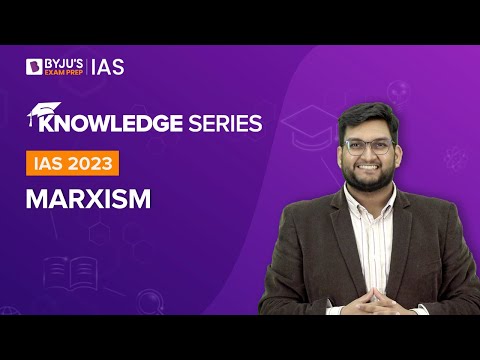Gandhism and Marxism are compelling theories relating to politics and many other things. These two theories had convergences as well as contrasts. Mohandas Karamchand Gandhi, known as Gandhiji by all, was a famous patriot and leader of India. His famous philosophy of non-violence against the British’s anti-colonisation movement has inspired various leaders across the globe. His ideology of Gandhism revolves around the bunch of religious and social ideas adopted and developed by him. Karl Heinrich Marx, known as Karl Marx, was a philosopher in Germany. Marxism is the collective theory critically of politics, economics, and society. The conflict between the classes was identified and addressed through his theories.
This article discusses the differences between Marxism and Gandhism in the context of the IAS Exam.
The candidates can go through the relevant topics useful for their upcoming exams from the links provided below:
Difference between Marxism and Gandhism

- Ideal State Conception:
The main aim of both Gandhiji and Karl Marx’s ideology was to establish a classless and stateless society. Although their aim was the same, how they sorted to achieve it was different. Marx took the violent path to achieve this aim, but Gandhiji believed that non-violence could be a weapon to end this problem.
- Ends and Means:
Gandhiji was never in favour of using violent means to achieve a result. To achieve freedom, he and his followers followed the non-violent path.
Marxists did not believe in non-violence. Followers of Marx believed that to abolish the parliamentary and socialist problem; one has to bring revolution through violence.
- Capitalism:
Both the ideology of Gandhism and Marxism opposed exploitation and capitalism. According to Gandhiji, capitalism could be overthrown by the decentralisation of the economy, like encouraging having cottage industries. He did not encourage violence to end capitalism.
Karl Marx, the father of socialism, did not tolerate capitalism. He believed this condition in Europe could be abolished through violence. He wanted to revolt against the government to destroy capitalism’s roots and branches.
- Democracy vs Dictatorship:
The firm faith of Gandhiji was in democracy, although he considered the democracy in Western countries to be incomplete. His suggestion was to decentralise the power. He supported the state’s welfare and was against autocracy or dictatorship.
Marxists believed in the ideology of the Proletariat’s Dictatorship. According to the followers of Marx, most powers should be given to the workers. The Communist Party used these powers in China, the U.S.S.R, and other Eastern Europe countries are driven by communism.
Gandhiji was a supporter of the liberty of an individual. He believed that humanity could be won by the power vested in love.
- Spiritualism vs Materialism:
Mahatma Gandhi was a spiritualist. He understood the impact that was deeper in religion. He was not attached much to luxuries or materialism. He always believed humans should have minimum needs.
Karl Marx, on the other hand, did not believe in God. He believed that religious beliefs dragged down workers to revolt against capitalism. He believed in materialism. He supported the idea by citing the importance of economic factors by giving economic and materialistic interpretations.
- Capital Investment:
Followers of Marx did not accept land owned privately and favoured collective farming. They believed it would give greater state control. Gandhiji did not want to snatch off the land by force from the landlords. He believed in cooperative farming.
To summarise, there are a lot of differences between both Ideologies in different aspects. There are supporters of both types of beliefs. Different countries have set up their government based on one of these ideologies.
For the Best preparation strategy for competitive exams candidates can visit the linked article and get detailed study material and preparation tips to excel in the examination.
The above details would help candidates prepare for UPSC 2023.
Frequently Asked Questions on Difference between Marxism and Gandhism
What do you mean by the ‘Sarvodaya’ concept?
The concept of ‘Sarvodaya’ was introduced by Gandhiji. The concept was introduced to promote the welfare of all the classes and sections of society, rather than promoting only one. He was inspired to introduce this concept by the book “Unto This Last” written by John Ruskin.
Name the Communist Manifesto written by Karl Marx.
‘Let, the capitalists tremble at the Communist revolution’ was the communist manifesto written by Karl Marx. Through this manifesto, Karl Marx emphasised that a socialist revolution cannot be achieved without violence.
What was Gandhiji’s view on village Panchayats?
Gandhiji believed in democracy. Therefore, he understood the importance of giving village Panchayats more power to provide the villages with full autonomy.
Other related links:
Comments